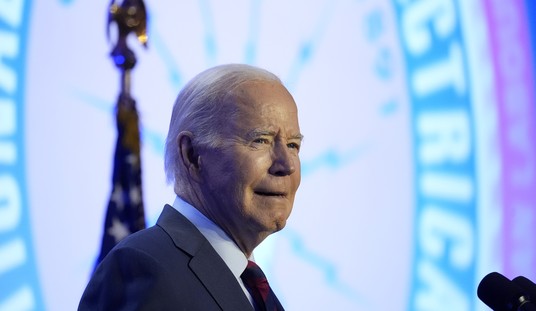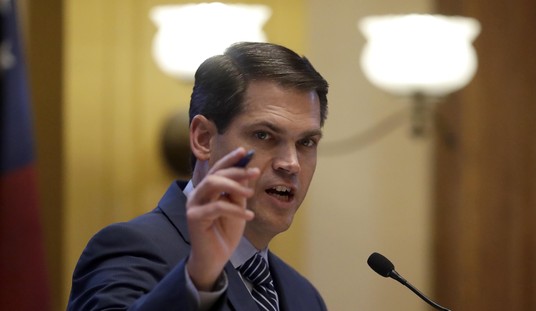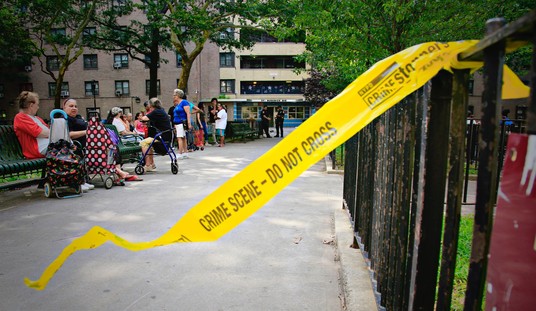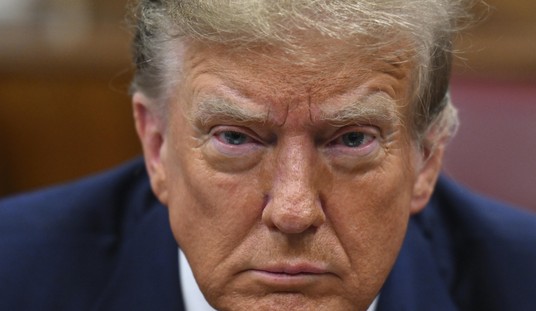Five days ago, Venezuelan dictator Hugo Chavez got his cherry-picked lame-duck legislature to pass a new law allowing him to “rule by emergency decree” for the next 18 months, thereby allowing him to bypass the newly elected legislature, in which the opposition won scores of seats. Chavez calls it an “Enabling” act that will allow him to successfully deepen and extend his “socialist Bolivarian revolution.” You can read about it in various press reports, such as this one from the AP and a report from Reuters, or you can read a first rate analysis from the conservative website The New American.
Teodoro Petkoff is a former Marxist guerrilla leader and now a major opponent of Chavez’s goons. He correctly called Chavez’s announcement a “Christmas ambush,” writing in his daily Tal Cual that Chavez is preparing totalitarian measures that amount to “a brutal attack … against democratic life.” These measures include a new vat tax, restricting access to the internet, regulating posts on the internet, and, of course, closing down more of opposition newspapers, and television and radio stations. All this, of course, in the name of real “democracy.” Joel D. Hirst at the Council on Foreign Relations presents a full account of what Chavez intends to do with his new powers.
Here, from Hirst and the Council, are Chavez’s main goals:
- Media and Telecommunications. The modification of the Media Responsibility Law and the Telecommunications Law place severe restrictions on the Internet, centralizing access under the control of a government server. They re-categorize the airwaves as a “public good” and set in place harsh penalties for arcane and obtuse violations of the law. The laws require TV stations to re-apply for their licenses and for the owners to be in the country (a clear reference to Globovision, whose owner, Dr. Guillermo Zuloaga, is in political exile in the United States).
- Electoral Reform. The reform of the Political Party Law establishes the crime of electoral fraud. Fraud would be committed if a politician changed parties, voted against legislation that was “ideologically represented” by their “electoral offer” (on file when they registered their candidacy with the National Electoral Council), or if they make common cause with ideas or people who are not ideologically akin to their electoral offer. Sanctions are the expulsion from parliament and inability to run for public office for up to eight years. This law is meant to protect against individuals or political parties turning against Chavez, as happened with the opposition parties of PODEMOS (We Can) and PPT (Fatherland for All).
- Economy and Governance. Chavez is pushing through a block of five laws: Popular Power, Planning and Popular Power, Communes, Social Control, and the law of Development and Support of the Communal Economy. These laws establish the commune as the lowest level of Venezuelan economy and government. They set in place the Popular Power, which is responsible to the Revolutionary leadership (Chavez) for all governing (eliminating the municipalities and regional government’s constitutional mandate). To facilitate the creation of this new governance model, the Assembly is approving the Law of the System for Transferring the Responsibilities of the States and Municipalities to the Popular Power.
Clearly, the above is a full recipe for totalitarian power and the creation of another full-fledged Cuban-style regime in our hemisphere. The American far left, or what remains of it, will be quite happy. Bill Ayers, who is on record as extolling Chavez’s educational system as the one he wants imposed in the United States, must be elated today after learning that university autonomy will be abolished, and that the university will now require “teaching courses on Popular Power and communes, and [that it] focuses the pedagogy around revolutionary principles.” Perhaps Chavez will import Ayers’ instructional manuals on how to achieve this end for the mandatory new programs.
Also happy will be former Nation publisher and editor-in-chief Victor Navasky, now a major professor at the Columbia University School of Journalism. Sent to Venezuela in in 2007 by the Committee to Protect Journalists, a group that set up an investigation of Chavez’s war against a free press, Navasky reported that he would go, although he explained, “I knew Chávez was overwhelmingly popular with the poor and I wasn’t interested in participating in an anti-Chávez hit job, even in the worthy cause of human rights.” Notice how Navasky, the very model of a New York City leftist, puts human rights by the wayside when it comes to extolling the revolutionary virtues of a would-be Communist dictator. As Navasky sees things, the threat to a free press was not Chavez, but the “media owners.” To criticize Chavez, evidently, amounts to nothing but a “hit-job.” No wonder Chavez loves the likes of Navasky and Oliver Stone. Navasky must pine for the day when The Nation would be mandatory reading in this country and Fox News would be closed down. As he wrote, Chavez’s goal of “socialism in the 21st Century” is one “to be nourished as an ideal to pursue rather than a policy to be mocked.”
Of course, Ayers and Navasky will not be happy to see that the Obama administration’s reaction finally is harsh. State Department spokesman Philip Crowley said that Chavez is establishing “new and creative ways to justify autocratic powers.” He added: “What he is doing here, we believe, is subverting the will of the Venezuelan people.” No wonder the left thinks the Obama administration is now betraying them.
There is one good historical precedent for what Chavez is attempting, and it does not come from the history of Communist countries now long gone. Rather, it comes from the policies established by Adolf Hitler after the burning of the Reichstag by an arsonist in 1933. Arguing that the Communists were trying to subvert the German government (Chavez, of course, says the anti-Communists are doing the same in Venezuela), Hitler asked President von Hindenburg to pass an “emergency decree” to allow the Nazi government to have full emergency powers. All civil liberties were suspended, and mass arrests followed of Communists, socialists, trade unionists and other opponents of the regime. Opposition delegates were removed from the Reichstag, giving the Nazis a legislative majority that did not exist before.
New elections were set for March 5, 1933. By passing the Enabling Act — the same term used by Chavez today — Hitler sought to abolish democracy by formally democratic means. According to the Act, Article 48 of the Weimar Constitution allowed the chancellor to rule by decree in times of a national emergency, without the participation of the Reichstag. But the Nazi Party had only 32 per cent of the seats in the Reichstag, and to pass the Enabling Act there had to be a two-thirds majority. By banning opposition Communist delegates who had all been arrested, and preventing Social-Democrats from taking seats to which they were elected after the Reichstag fire, the Nazis now had the necessary votes to pass the Act. Clearly, Hugo Chavez must have studied Hitler’s tactics before commencing upon a similar road.
All this brings to mind the appropriate term we might consider using to describe Hugo Chavez. I suggest an old one from the days of the Cold War: CommuNazi. An adherent of Communist ideology, Chavez has much more in common with the activities of the Nazis under Hitler than the Communists led by Stalin, who, in Eastern Europe after WW II, used so-called “salami tactics” to gain control of the parliament, and who created phony Social-Democratic groups aligned with the Communists to maintain the façade of democracy in the new so-called “People’s Democracies.”
Let us hope that the Obama administration and the State Department begin to take the threat posed by Chavez seriously, especially as he makes arms and trade deals with Iran and Russia. There is more for us to fear than his rhetoric and his internal policies meant to consolidate totalitarian rule in Venezuela.








Join the conversation as a VIP Member